Ceduna’s fears laid bare in 29 letters crying for help as lawless behaviour takes hold in far west hub
The Advertiser has obtained 29 letters written by fed-up and frightened locals in the far west town of Ceduna, who say a rise in drunken, antisocial behaviour must be reversed.

SA News
Don't miss out on the headlines from SA News. Followed categories will be added to My News.
Almost 30 business owners from Ceduna in the state’s Far West have written letters raising concerns about widespread public anti-social behaviour plaguing the coastal town for the past two years.
The Advertiser has exclusively obtained 29 letters written by concerned locals who have detailed incidents of public intoxication, domestic violence and “out-of-control” anti-social behaviour daily in the town’s CBD.
Mostly addressed to “whom it may concern”, the letters are said to be a “cry for help”, with many business owners, some who have operated in Ceduna for decades, considering closing down permanently if the problem persists.
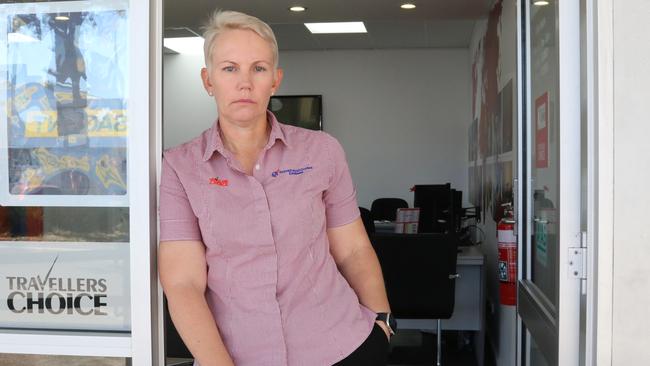
On Monday, the community hotel placed alcohol sale restrictions on the local bottle-shop, prohibiting the sales of cask wine, spirits, or fortified wine before midday.
It comes as public intoxication, fighting in the street, property damage and a rise in shop thefts have “become normalised”, with reports of people blatantly walking into shops, grabbing items in front of shopkeepers and walking out without paying.
A majority of the authors believe the rise in anti-social behaviour in the town centre has “escalated” since the Albanese government abolished the Cashless Debit Card (CDC) in mid 2022, which was brought in by the former Coalition in 2016, and quarantined 80 per cent of people’s welfare payments, only allowing 20 per cent to be drawn out in cash.
Owner of Ceduna Travel and Cruise, Tullie Seneca is one of the 29 authors who have detailed constant anti-social behaviour outside her shop front, with Ms Seneca having to call police on multiple occasions.
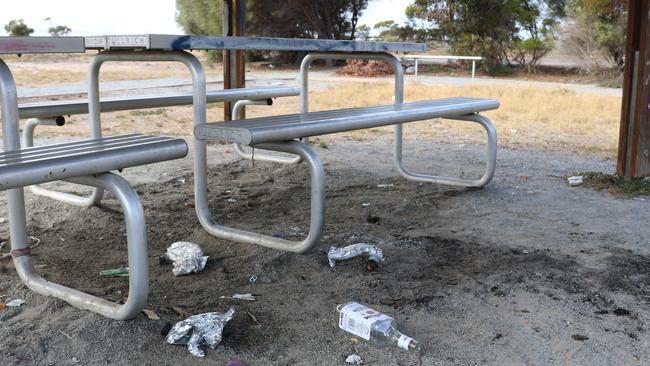
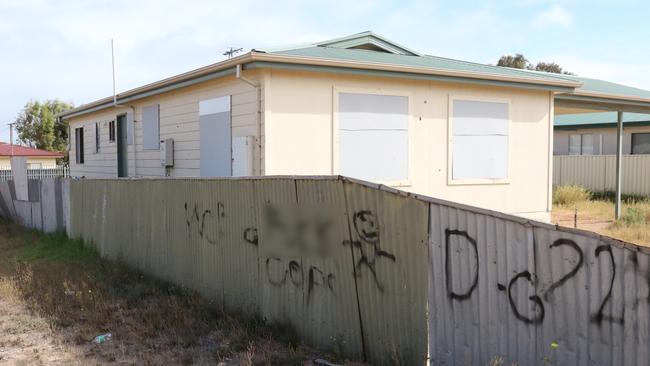
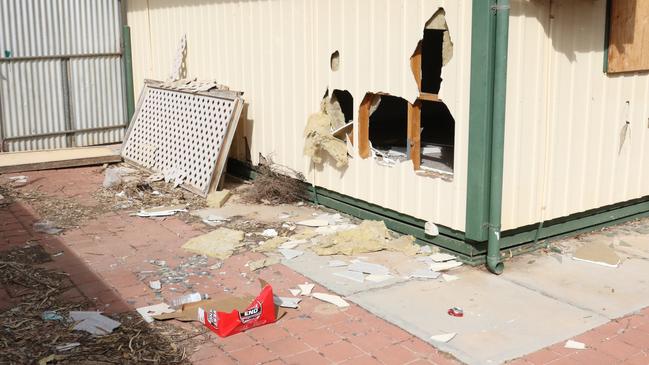
“I have had no choice but to contact law enforcement multiple times due to the rising incidents of violence stemming from drunken disorderly conduct and domestic disputes,” her letter read.
“There is everything from constant litter in the street and spitting, to yelling and regular fights breaking out.
“Since the removal of the cashless debit card, I have observed a noticeable increase in such behaviour (and) I fear that these challenges will persist unless we break the cycle of drug and alcohol abuse and domestic violence.”
Husband and wife, Kirk and Jody Spry own both the local sports’ store and surf shop, which sits opposite to the Red Cross, where a fight broke out a few weeks ago, which Ms Spry attempted to stop.
Ms Spry told the Advertiser that she almost got assaulted during the altercation, which was in full view of shocked onlookers.
“It’s become more normalised and the shops were full of tourists, and they’re just standing there watching and going, ‘what is going on’,” Ms Spry said.
“We used to spend a lot of our time saying, ‘it’s not normal, it’s not normal’, but then, it’s happening more and more’ and it’s like, ‘is it safe to walk down the street’.
“But I think it might get to the point where we might not actually care because if it keeps going then we’re probably going to have to shut our businesses.”
Many business owners and local leaders say that the people committing the acts are said to be a “small minority” from surrounding remote communities, who find themselves stranded in Ceduna, with a visible rise in homelessness and a “tent city” growing on the outskirts of town.

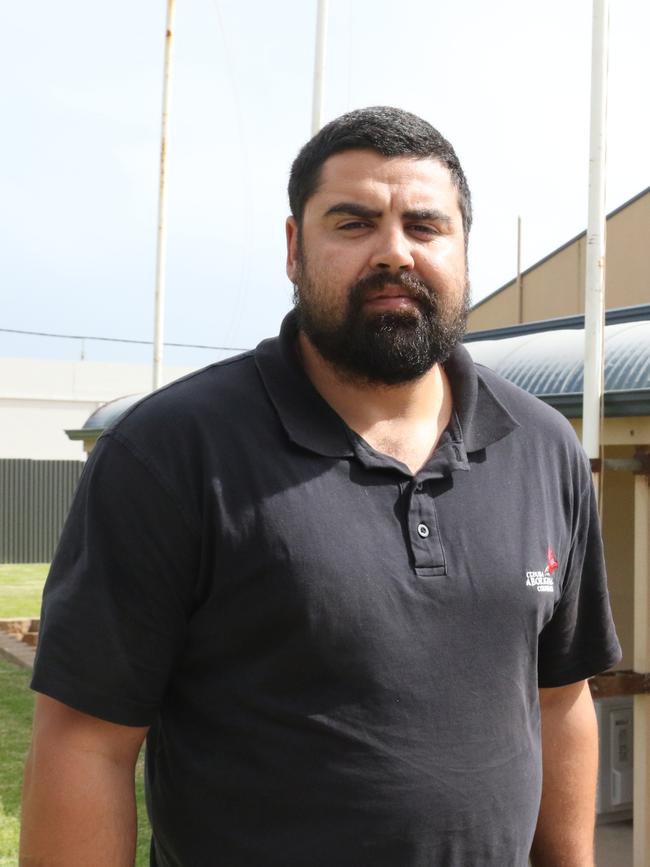
Wirangu man and CEO of the Ceduna Aboriginal Corporation, Wayne Miller told the Advertiser that returning the CDC with a “blanket” approach would have a profound negative impact on people who “didn’t need to be on the card”, which would result in further disadvantage for families in the town.
“We’ve trialled the card and we’ve found that a lot of people, who are responsible community members, didn’t need to be on the card,” he said.
“We can’t have a blanket approach where everybody is placed on the card.”
He said the uptick in anti-social behaviour started when the mutual obligations for the work-for-the-dole scheme, known as the Community Development Program (CDP) was abolished by the federal Liberal government in May 2021.
“We could actually see through data, that when mutual obligation ended, there was actually an increase in anti-social behaviour from that point,” he said.
Mr Miller said the community took it “personal” that Ceduna was being used as a “political football” with the CDC and the abolition of the mutual obligation requirements for the work-for-the-dole scheme.
“It’s not about playing politics, it’s about what the best outcomes are for our people,” he said.
Federal Minister for Social Services, Amanda Rishworth told the Advertiser that the problems stemmed from intergenerational issues and said the abolition of the card was not responsible.

“Anti-social behaviour, particularly youth disorder, is a problem in many places across Australia,” she said.
“Many towns, particularly in regional and remote Australia are dealing with complex and intergenerational problems, where there is no one solution.
“The mandatory, punitive Cashless Debit Card program was an ideological obsession pursued by the Coalition.”
Meanwhile, Federal Minister for Indigenous Australians, Linda Burney told the Advertiser that the CDP program was “broken” and no longer “fit for purpose”, and said the Albanese government was rolling out better version of work-for-the-dole, called the Remote Jobs and Economic Development Program (RJED), that will create 3,000 jobs in remote communities.
“We’re getting on with the job of delivering a new remote jobs program that is all about real jobs and proper pay and conditions,” she said.
“We are putting communities in the driver’s seat to create local jobs and businesses.
“We are on track to start rolling this out in the second half of this year.”
The RJED is designed to pay participants full wages when they work, with a trial of 15 jobs being rolled out in Ceduna this week.





